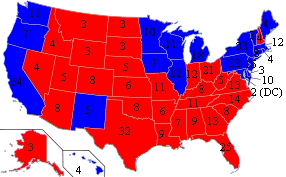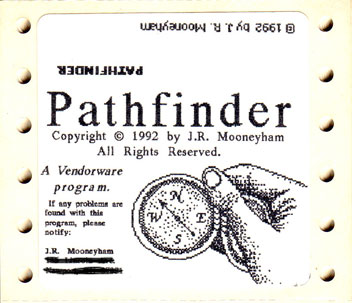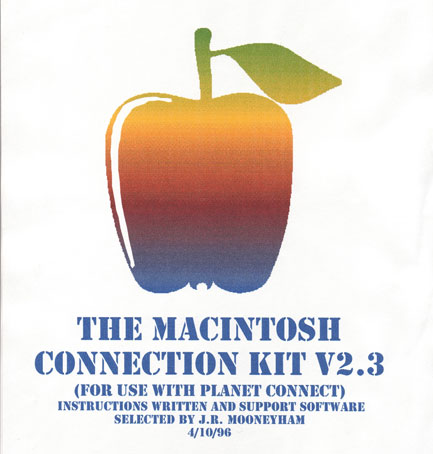      
(Translate this site)
Search this site
Search the bookstore
ONE MINUTE SITE TOUR
|
Is there anywhere to go but down in America?

How the odds are stacked against the average Joe (and Joanna) in America
The mainstream media acts like bad times only just struck Americans in the past year or so. But for many non-Wall Streeters and non-corporate execs the past few decades, there's never been much of anything you could describe as 'good times'. No matter how hard you worked, or how inventive and productive you managed to become.
This page last updated on or about 4-27-11
a - j m o o n e y h a m . c o m - o r i g i n a l
|
|
Site map
Latest site updates
Site web log(s)
Site author
|
Being born a poor Republican
If anyone had told me when I was in my early twenties everything I'd do seeking a better life in decades to follow-- and how all of it would barely budge my fortunes at all-- I wouldn't have believed them. For I was raised with the belief that any American who worked at it hard enough, long enough, and creatively enough-- no matter how poor they started out-- not only could but almost certainly would attain fortune and fame.
In short, I was born into a poor, rural Republican family.
|

|
|
My family always lived paycheck to paycheck, with both my parents working full-time wherever the arrival of a fresh baby didn't force mom to take some time off. We scrimped and saved and improvised, and somehow came to own our own home-- though good luck had a lot to do with that. For if any of us had been struck down especially hard by illness or injury, we could easily have ended up losing everything to the resulting mountain of new debt.
I finally ended up with five brothers and sisters.
Like most everyone else I personally knew, I toiled away exclusively at regular jobs from age 15 to around 25 or so, frequently working full-time while also attending school full-time, first in high school, then later in college. These were jobs where I had fairly strong limitations on how much I could make, where, and when. There were periods where I actually put in 50 hours at one job during weekdays (counting the commute), then maybe 16 hours or more at another on the weekends. Once I worked 112 hours a week for six weeks straight (at a food canning factory).
In my parts, you worked all you could, as many hours as you could, because jobs could often be scarce and hard to come by.
Something had to change
After a while I realized I couldn't get ahead via the traditional employment route. I barely stayed ahead of my bills, though I bought almost nothing extra, not discarding clothing until it was literally falling off me, doing every possible repair I could on car, housing, and appliances myself, and doing without almost all the niceties my associates were enjoying at the time, like stereo systems and mini refrigerators in their dorm rooms. Dating too was almost non-existent for me. For I simply didn't usually have the spare cash. And atop all this, my jobs and bosses were often pretty awful, from just about any perspective.
I also read Atlas Shrugged and the Fountainhead by Ayn Rand around this time. Which tended to make me a bit fanatical in regards to making every moment count, and making my own way in the world. I learned how to say "no" to people who I knew would only be wasting my time.
|

|
|
My first steps into self-employment and entrepreneurial ventures were part-time affairs, done while I still kept a regular 40 hour a week job to finance my efforts, plus fall back on if need be. This was good advice I found in my research regarding the subject.
When you read about entrepreneurs in magazines or newspapers, they're usually execs with great connections from big companies, who managed to amass millions of dollars with which to start their own venture, and then quit the corporation. Or guys who basically inherited big money from family with which to do a start up.
In other words, most entrepreneurs you hear about have lots of money to play with as they pick and choose what they'll do as a business. And if the business fails, they still often have millions left to sustain them until they get another shot.
Me, I was the opposite. I had to seek out business opportunities I could start up for only hundreds of dollars, and preferably less. And search for most of these opportunities in a place which seemed almost always in those days to suffer from 10% unemployment or worse.
And if I failed or made too big a mistake, I could land in jail (or worse).
My experiments worked well enough to soon free me from traditional jobs-- even if I rarely made more money that way. But having a wee bit more freedom and control over my life did feel like an improvement.
The first week or so after breaking completely free of conventional employment, I would set my alarm clock for an early hour anyway, just for the pleasure of waking up, realizing I didn't have to, and going back to sleep again.
One of the many millions of real life small-time entrepreneur stories you never hear about in US media
I was young, healthy, and willing to push the envelope in many ways. Able to get by on little money, as I could build or repair much of my own gear essential to daily living and business operations. I could (and sometimes did) literally live out of a suitcase or a car, eat on the cheap, and sleep in some pretty harsh conditions at times.
I was the sort of guy who could sleep on a couch for months, or in a sleeping bag on a hard floor for weeks. Relocate a thousand miles away for a contract within only days of hearing of the opportunity. Who, rather than buy real furniture for a stay of months, might buy some cheap fold-up stuff instead-- like lawn chairs.
I also managed to put in a couple stints at college along the way. College and books in general were pretty much where most of my available cash went (although I also plumbed libraries for all the free info I could get). Business equipment and supplies got the second biggest chunk.
So yes: I was trying mightily to do all the things I read and heard were on the to-do list for getting ahead, in the 1970s and 1980s.
I would have invested in the stock market too if I could have-- but my spare cash pile never got big enough for that to be practical.
However, the expense and loneliness on my college campus combined with work (I worked part-time then, too) both times led to me cutting those stays short.
You've got to keep in mind I had virtually no social life; for I couldn't afford to date. I worked almost all the time at either a regular job, studying, or putting in time on my latest entrepreneurial effort. And that lack of a social life likely contributed a lot to me dropping out of school after a while.
For it's sure tough to be all work and no play for such lengthy periods of time. And prolonged loneliness can be one of the hardest things for a person to endure for years on end.
But all along I figured there'd be plenty of time for a social life after I'd made something of myself: e.g., built a fortune of some kind. Or at least found some sort of business operation capable of sustaining me and a possible family over the long term.
It seemed obvious from my previous ten years of experience with traditional jobs that I had no hope of building a decent life for myself and others that way.
I did on occasion make pretty good money along the way. But that was the exception rather than the rule.

Even when flush with cash, I would still live in a miserly fashion. For I knew I had to save all I could for the harder times to come. And come they did. Repeatedly.
Even my greatest financial successes during those years were limited: for they weren't scalable. That is, they still too closely resembled traditional jobs, where my earnings were limited to the hours I could work, and the pay scales I could garner from a corporate employer or client. Getting rich via that route is usually only attainable for those willing to lie, cheat, steal, manipulate, and back-stab their way to the top of the corporate structure-- at least based on what I personally witnessed in such places (and read about too, in the time since). These were all things I was unwilling to do, and likely incapable of doing, as well. Due to who I was, most of all.
Somehow I had to find a way to leapfrog such obstacles.
I was sure there had to be some opportunities to do so somewhere.
For I lived in America! The land of opportunity!
Around that time the personal computer industry was still maturing, and so there seemed still to be a few remnants of opportunities available for small software developers-- although fresh success stories by then were already becoming harder and harder to find.
The world wide web as we know it today was still in its cradle then, and not widely available to consumers.
I came late to the software development market, largely because after spending all that money on college, I couldn't afford to buy into the first ten years of the personal computer market: the machines cost small fortunes! Especially when you included such frivolous items as a display, storage device, or printer(!). And a program or two, so that you could do more than simply stare at a blinking cursor.
And no: I didn't play games on the machines. In fact, I don't believe I've ever bought a single computer game or video game during my entire life. Seriously. Mostly because I simply didn't have the spare cash. But partly because I didn't have the luxury of lots of free time on my hands, either.
So I ended up making my biggest ever entrepreneurial investment into a couple of reasonably up-to-date computers and some programming software. Enlisted the help of my brother, and basically paid for him to do on-the-job programming training.
(He'd already shown great promise in previous programming environments for purposes both fun and serious; but here he'd have to use the mainstream C language for the very first time, and learn it as he went; and learning C all on your own was no easy task!)
I designed an application, wrote the text required, created the artwork, and relentlessly tested it, writing up bug reports for my brother, who wrote the actual code and fixed the bugs.
What was the application? At its core, it was an interactive I Ching program, which would answer questions posed to it by users. A few years before I'd seen a much simpler version of this be released by someone else (and turn out to be fairly popular), and thought I could turn out a much better example. For one thing, my program integrated several philosophical classics rather than just the one, including the I Ching, the Tao of Power, and the Art of War. Atop all that, I updated the original interpretations to better match modern American language and phrasing, so people could better comprehend the answers they got.
By this time I was very familiar with these works, having studied them extensively after the philosophy of Ayn Rand seemed to have failed me, by being far too narrow-minded in many ways.
Some might say this doesn't sound very ambitious of me. But keep in mind I was limited to the resources at hand. And the work was probably much more substantial than many might expect. For one thing, I essentially had to write an entire book to create the text for this thing. Plus figure out a way to get true randomness out of a computer program, at a time when (older programmers will confirm) a real random function was not available in personal computers. And there were other complexities as well, related to distribution, marketing, and defense against piracy.
But our hopes were dashed when our computing platform shifted beneath us, as the operating system we were writing for changed in a big way just as we released version 1.0 of our app. The change badly broke our program, and we were too exhausted to begin anew.
Not long after that I did-- with strenuous effort-- produce a new version of the program which would run in the new operating system, using a different programming language than my brother had coded with. But once again the sands beneath my feet shifted, as Apple Computer killed all support for the new language I'd tried, thereby killing the market for my second effort as well.
And that's how I came to give up on software development. Not just because of the thousands of dollars I'd lost, and all the time wasted, but because I had a tiny niece and nephews starting to show up, for whom I sometimes had to baby-sit. And so huge chunks of my available time for new business projects simply vanished.
In the decades since I continued to use that program myself on an ancient Mac which could still run the original version-- until the ancient Mac itself died, and I couldn't afford the time and money necessary to resuscitate it. For I found the program wonderful for creative brainstorming. And sufficiently 'aware' at times as to raise goose bumps on my skin.
For more about that little program, check out The rebirth of Pathfinder.
|

|
|
Being a life-long science fiction fan, I next began crafting my own epic in the genre. And dreamed of gaining riches as an author.
But wishing for it to be as plausible and scientifically accurate as possible, I had to precede the novel with a research project into the possibilities and probabilities of society and technology, past, present, and future. And do the same for alien contact, too.











The results of that research included my illustrated speculative timeline of future technology and social change, and The rise and fall of star faring civilizations in our own galaxy.
The novel, now roughly 20 years in the making, is The Chance of a Realtime.
During the time I was developing software and doing my earliest work on the timeline and novel, the internet finally began becoming practical for regular people to use. And I thought at long last all my dreams could come true.
In the earliest days the world wide web didn't exist (web browsers were still just a gleam in certain scientists' eyes). So I created an electronic magazine in Apple Macintosh Hypercard and Adobe Acrobat PDF formats, and made the issues available for download online, and on shareware/freeware CDs.
My magazine in some forms was interactive, and could include 'extras' such as programming utilities and other items. In the final issues, the interactive version could actually be transformed into a fairly unlimited way to script in Apple's Hypercard environment for free (Apple had begun charging for that some time before).
Here's some samples from my original pre-world-wide-web electronic magazine.
I tried to help the internet grow by providing Mac user support to my local ISP, in exchange for free dial-up net access. I ended up creating a comprehensive kit of how-to instructions and helpful software utilities for people wishing to get online (in those days it was one unholy geeky mess to connect your computer to the internet).
Once the world wide web became sufficiently functional, it rendered my interactive magazine moot. So I began porting my content to the web instead.
I posted my research into the future and alien civilizations online. The Pearsall Saga, and more. Began one of the earliest generation blogs (before the term "blog" was coined, I believe).
I also posted much do-it-yourself and educational material. Such as How to live well on very, very little, Dealing with job burnout, depression, and more, How to change your luck for good or ill, How to protect yourself from lots of 21st century threats, and Guarding your health for very, very low cost.
I would eventually add to all that various politically-related research, such as In plain English: The best way for Congress to pull America out of the financial toilet-- and why they won't do it, The enormous hidden costs to society of 'right-wing' political governance, What the rich do with their astonishing freedom from taxes, America's de facto domestic and foreign policies of artificial scarcity and institutionalized poverty and Civilization's best defenses against war, terrorism, technological stagnation, and economic ruin.
|

|
|
All during this time I was still 'free-lancing', or taking on consultant jobs here and there, doing a fairly wide range of work, from helping create business presentations, to building a corporate LAN and server and email systems, designing business signs, and doing specialty printing jobs, among other things.
Beginning around 2004 I believe, I noticed quite a bit of cable TV programming about hot rodding appearing on air, and figured that maybe there'd be an audience for info about my own real life supercar days. And so began penning the sometimes painfully auto-biographical content which would eventually be indexed at The Shadowfast supercar driver logs (I'd never have divulged this stuff had I been financially comfortable). Another thing I figured those accounts would have going for them was their much stronger connection to the here and now, and real world facts and adventures, than my science fiction works and timeline did.
But still, finding a good way to make money on the net eluded me over most of the years between 1990 and 2004 or so.
At first glance, the internet looks like a beautiful oasis where making money is concerned.
The truth though is that most of it is a harsh economic desert, where money is almost nowhere to be found.
|

|
|
Basically, most people posting online are paying others to read or use their sites, as it typically costs lots more to operate a site than it brings in.
So we're talking the 'net being vanity publishing writ large here, for maybe 98% of the non-corporate, non-mass media sourced content to be found there.
But after some years, various revenue generation methods began to appear on the net, and I tried them.
Unfortunately, many of the methods proved unsustainable. For instance, tripod.com for a while paid out a good portion of banner ad revenues collected to site owners. But that soon collapsed.
The affiliate sales model also appeared around the same time. But only certain, narrow types of sites could benefit from that, and even those typically required huge traffic numbers to do so.
And traffic was a problem.
Although total net traffic has grown by leaps and bounds ever since web browsers became reliable and free (and getting net access much less geeky), the total number and diversity of web sites was growing still faster. Which left supply far outstripping demand. So more and more web sites found themselves steadily losing what meager traffic they'd ever managed to ramp up to in the first place. Which made virtually any and all revenue models impractical for many.
Then a certain major search engine brought contextual text ads to the net.
This new model seemed promising for a while, but soon fell victim to the same economic conditions as all the models before it.
|

|
|
About all you can say about contextual text ads today is that they're much like the affiliate sales model: an early form of micropayments system which works relatively well for a certain kind of web site (which also possesses substantial traffic), but almost not at all for the majority of sites.
It does seem that some third-world-based web authors get enough from such a system to be significant to their total income (Five US dollars goes a lot farther in a third world country than it does in America itself).
Eventually it became evident that traffic was all that mattered. Both in quantity and quality. Without suitable traffic, perhaps no business model was sustainable.
And when I say traffic, I mean visitor rates far, far in excess of what beginners would estimate to be necessary for success.
Essentially, anyone starting from scratch in America needs much more than hard work, determination, and creativity to make it; they need luck most of all. Indeed, if the huge successes of lots of TV reality show stars these days are any indication, luck might be the only thing you need to make it in America. And perhaps the only way to make it, as well.
Of course, big money or big connections might replace luck in the equation, such as when big business launches massive marketing and promotional campaigns for their products or services, to make them overnight successes. But big money and big connections aren't things most of us have available.
So anyway, this is the state of the net circa 2010-2012 (and apparently much of everything else in America).
Nowhere to go but down?
If current trends continue, large chunks of today's net are destined to go dark, as the traffic essential to sustain such links gets steadily funneled to fewer and fewer large corporate sites, and a handful of lucky small survivors.
As I struggled through all this alongside multitudes of other web authors and internet entrepreneurs, I also documented what I learned about it and related topics, in pages like Low cost web site authoring, How to make money with your web site (self-employment), The super-rich, the 'plain' rich, the 'poorest' rich, and How to get rich in America.
Partly in the hope that my research would pave the way for someone much smarter than me to figure out some new model for sustenance on the web which might at last fulfill the promise of the American Dream, and for the first time ever make it truly possible for virtually any of us to attain sufficient financial comfort and security to allow a prosperous and dignified life, as opposed to the frantic every-man-for-himself economy we've lived in for so very long now.
Again, if anyone had told me in my twenties that I could do all that I have, and be struggling harder than ever as I neared retirement age (and was beginning to fall to pieces healthwise, even as my health insurance company gets ever greedier for money, and stingier about what they'll pay for), I wouldn't have believed them.
For the America I was raised to believe in and expect was nothing like this!
MID-2011 UPDATE: I'm now trying out ebook publishing. I've posted a guide for others based on what I've learned at How to make your own Amazon Kindle ebook in just hours
CHEAT SHEET (you can also see a list of my own ebooks there). END UPDATE.
|

|
|
LAST WORDS:
"To test his hunch he designed Rat Park, an alternative laboratory environment constructed around the need of the subjects rather than the experimenters. A colony of rats, who are naturally gregarious, were allowed to roam together in a large vivarium enriched with wheels, balls and other playthings, on a deep bed of aromatic cedar shavings and with plenty of space for breeding and private interactions. Pleasant woodland vistas were even painted on the surrounding walls. In this situation, the rats' responses to drugs such as opiates were transformed. They no longer showed interest in pressing levers for rewards of morphine: even if forcibly addicted, they would suffer withdrawals rather than maintaining their dependence. Even a sugar solution could not tempt them to the morphine water (though they would choose this if naloxone was added to block the opiate effects). It seemed that the standard experiments were measuring not the addictiveness of opiates but the cruelty of the stresses inflicted on lab rats caged in solitary confinement, shaved, catheterised and with probes inserted into their median forebrain bundles."
"even a cursory historical and cultural survey reveals that the incidence of addiction is essentially a social phenomenon. Many historical and indigenous cultures have lacked even the concept of addiction - but many of these same cultures, once their traditional structures have been disrupted by conquest or colonisation, have been destroyed by it. All across the Americas, the Pacific and Australia, hundreds of 'demoralised' cultures have descended into vicious spirals of addiction, usually to alcohol, in many tragic cases wiping themselves out entirely. The root causes of addiction, then, must run deeper than any individual pathology: they must be sought in a larger story of cultural malaise and 'poverty of the spirit' that forces individuals, often en masse, into desperate and dysfunctional coping strategies."
"It is our now endemic culture of competitive, zero-sum individualism that has, in the phrase of Alexander's title, globalised addiction over the last 50 years."
-- Book review: 'The globalisation of addiction' by Bruce Alexander review by Mike Jay January 27, 2009
"An extension to the protections on intellectual property, the harshening of the bankruptcy process, the removal of social safety net protections, and rampant healthcare inflation all work to slow entrepreneurial activity."
-- The Anti-Entrepreneurial State by John Robb; March 09, 2005; jrobb.mindplex.org
"We have entered the one-strike-and-you're-out era. One lost job. One medical emergency. One bad risk or misjudgment of the heart."
-- House of Cards: The Faces Behind Foreclosures By David Von Drehle Friday, Feb. 27, 2009
"Working families were in deep trouble long before this megarecession hit. But too many of the public officials who should have been looking out for the middle class and the poor were part of the reckless and shockingly shortsighted alliance of conservatives and corporate leaders that rigged the economy in favor of the rich and ultimately brought it down completely."
"America used to be better than this."
"As hard as it may be to believe, the peak income year for the bottom 90 percent of Americans was way back in 1973, when the average income per taxpayer, adjusted for inflation, was $33,000. That was nearly $4,000 higher, Mr. Johnston pointed out, than in 2005.
Men have done particularly poorly. Men who are now in their 30s — the prime age for raising families — earn less money than members of their fathers' generation did at the same age."
-- Reviving the Dream By BOB HERBERT
Published: March 9, 2009
"The super-rich got even wealthier this year, and yet most of them are paying even fewer taxes to support the eduction, job training, and job creation of the rest of us. According to Forbes magazine’s annual survey, just released, the combined net worth of the 400 richest Americans climbed 8% this year, to $1.37 trillion."
"Only twice before in American history has so much been held by so few, and the gap between them and the great majority been a chasm — the late 1920s, and the era of the robber barons in the 1880s. "
-- The Super-Rich Get Richer, and Everyone Else Is Going Down the Drain Only twice before in American history has so much been held by so few, yet they're going to keep their fat tax cuts. By Robert B. Reich September 24, 2010
BACK to Newz&Viewz...
Copyright © 2009-2011 by J.R. Mooneyham. All rights reserved.




















